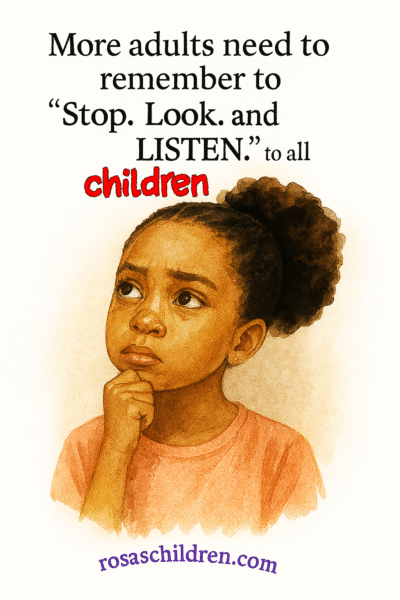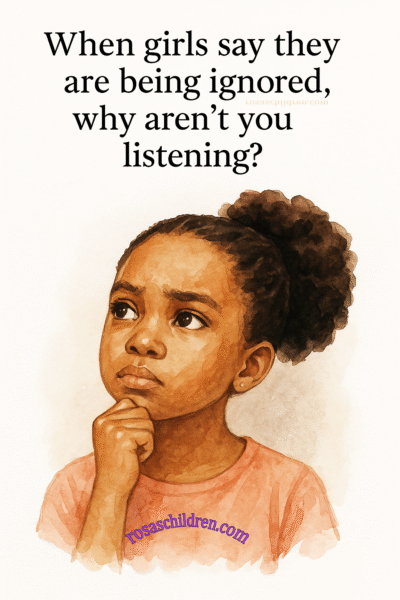We often say we care about children.We create programs, pass laws, build platforms, and call ourselves advocates.But what happens when the children th
We often say we care about children.
We create programs, pass laws, build platforms, and call ourselves advocates.
But what happens when the children themselves speak—and we refuse to listen?
In Montgomery County, Maryland, some children did exactly what we hope all children will do:
They used their voices.
They expressed discomfort.
They asked for boundaries.
They spoke their truth—with courage.
And adults dismissed them.
🗣️ What Happened
In the 2022–2023 school year, Montgomery County Public Schools introduced a set of LGBTQ+ inclusive storybooks for students in grades K–5. Initially, parents were allowed to opt their children out of these lessons.
But when the district changed its policy in March 2023—removing opt-out rights due to administrative strain and fears of stigmatization—some students and families pushed back.
And yes, children themselves showed up to testify.
One student pleaded:
“Allow students like me to opt out of content and books that contain sensitive and mature topics that go against my religious beliefs.”
Hundreds of parents and children gathered at board meetings to express their concerns.
But at least one board member dismissed a student’s heartfelt testimony as possibly just “parroting dogma” from home.
🧭 Why This Matters
 This is not about politics.
This is not about politics.
This is not about denying anyone’s existence.
This is about child development, emotional safety, and the spiritual truth that:
When we fail to listen to all the children—we create chaos.
Yes, some children felt affirmed by these lessons. That matters.
But other children felt confused, overwhelmed, or deeply conflicted. That also matters.
And when adults respond with:
“It’s just a few kids.”
“Girls have to learn to lose.”
“Why do you care so much?”
“Who cares?”
“They’ll be fine.”
We reveal something painful:
We are not listening. We are choosing sides instead of serving children.
🎶 A Lesson from the Youth Choir
Ask any youth choir director what happens when one voice is ignored or one section is forced to sing outside their range:
You don’t get harmony—you get tension. Discomfort. Discord.
The same is true in classrooms.
When we bulldoze over the boundaries of some children in the name of “progress” for others, we’re not creating inclusion.
We’re creating injury. Shame. Division.
This is not the children’s fault.
This is on us—the adults.
🛡️ There Are Better Ways
It has never been unusual for children to feel uncomfortable with sex education materials.
That’s why, for decades, professionals have worked to:
Teach these topics in ways that match children’s developmental stages and emotional readiness.
Offer opt-out options for families and children
Respect diverse belief systems and cultural values
Make room for emotional safety, not just lesson plans
Calling children bigots because they express discomfort with complex topics isn’t brave.
It’s cowardly.
It’s deflecting adult responsibility.
And it shows a refusal to grow into the kind of adults children deserve.
💬 Final Word
Yes—children testified.
Yes—they used their voices.
Yes—they asked us to slow down, to respect boundaries, to teach with care.
And we should have listened.
Because when a child says, “This makes me uncomfortable,”
the right response is not shame or ridicule.
The right response is:
“Thank you for telling me. How can we do this in a way that respects you, too?”
Let’s get better at listening to all of the children.
Not just the ones who say what we want to hear.
Let’s be the adults who follow through on our promise to protect them.
“And a little child shall lead them.”
But only if we are humble enough to follow.
*Note: Adults jumped to conclusions about children who wanted to opt-out without even considering that some of the children who wanted to opt out may have been questioning their own sexual orientation. And that’s okay. That’s a process. Kids need space and time for so many reasons. We really got schooled.